REVIEW – The Thaumaturge teases with mysteries as enigmatic as its title suggests – purportedly an RPG, yet boasting merely a stripped-down version of RPG mechanics. It promises an expansive and intricately crafted world, yet leaves us searching for purpose. Anticipated to be a twenty-hour journey, its secrets unravel within the first two hours. Warsaw dazzles here, captivating with its ambiance and meticulous details, yet this capital merely reigns over the domain of tedium.
The latest creation from Polish studio Fool’s Theory transports us to an early 20th-century Warsaw, markedly different from the city chronicled in our history books. Here, a realm where material reality meshes with mysticism, dreams, and nirvana, independence movements and grand manifestos coincide with the despair, melancholy, and fatalistic beliefs of the Young Poland movement. This era belongs to poets, rebels, bards, eccentrics, and… thaumaturges.
The titular thaumaturges possess a “sensory hypersensitivity,” enabling them to peer beyond the visible realm. They uncover emotions concealed within objects, identifying “blemishes” – profound psychological wounds that render people sorrowful, embittered, or even mad. Thaumaturges also wield dominion over the so-called salutators, perilous entities from the beyond, capable of fighting alongside them.
Polish Psychic Sherlock Holmes
Stepping into the shoes of Wiktor Szulski, a nascent thaumaturge forced to return to his family home in tsarist Warsaw after years in France, we embark on an intriguing journey. Along the way, he forms an alliance with Grigori Rasputin, the legendary spiritual advisor, aiding him in taming a feral salutator. Wiktor’s strained relationship with his father and his interactions with the Russian mystic weave the primary narrative threads of The Thaumaturge. Beyond these, we can undertake side missions or explore the capital, presented in isometric view outside of cutscenes.
The architecture, street fashion, and artistry of the capital reflect the era’s spirit, drawing attention with their detail richness. Regrettably, the game environment remains incredibly static – apart from trams and the odd pedestrian, there’s scarcely any movement to note. The character models fail to impress, especially during cutscenes, where their partial animations struggle to convey basic emotions, becoming more jarring the lesser their story significance. The atmospheric soundtrack, blending Jewish and Slavic melodies, earns well-deserved praise.
City of Missed Opportunities
A key aspect of the game lies in investigations and exploring the capital, which, while initially promising, disappoints anyone expecting a Frogwares-style Sherlock Holmes investigative experience. Here, true detective work or puzzle-solving is scant; gameplay largely revolves around roaming Warsaw’s cobblestone streets, clicking on every suitably tagged object. While some objects are essential for story progression, interacting with even unrelated items proves crucial for amassing the experience points needed for character development.
The dialogue system too feels forced. Often, engaging with someone first requires interacting with “emotional traces,” then pausing the conversation to seek new ones before resuming. Although these traces could theoretically offer player insights, most reveal little beyond poetic but ultimately meaningless messages, like a candle “holding the memory of mournful sadness, fueled by fear,” turning the supposed literary value tedious after the hundredth similar reading.
The game also offers dialogue choices, though most fail to even pretend to influence the story’s course. The importance of development points or flaws seems negligible in dialogue contexts – boiling down to additional options that typically converge on the same outcomes. Not once could I avert a conflict through conversation, a choice seemingly almost never genuinely available, leaving combat as the sole, though dynamically welcome, diversion in The Thaumaturge’s monotonous gameplay.
Fighting with a Medium’s Might
The turn-based combat system itself is adeptly executed and quite engaging. We can resort to fists or firearms, but our magical abilities and the aforementioned salutators play a pivotal role, with the latter becoming increasingly significant allies. Enemies can fall into “negative states,” boasting abilities akin to protective shields that require the power of a salutator companion to breach. The battles pose challenges, mainly due to underestimating the prowess of street thugs, who, absurdly, inflict more damage than shotgun and sabre-wielding police.
Gathering development points primarily through exploration, I scarcely felt any significant advancement in my combat skills. It’s perplexing how reading a postcard or newspaper article supposedly enhances my fighting capabilities. Moreover, the ease of accruing experience points, coupled with a development tree lacking strategic depth and logic, diminishes the need for thoughtful point allocation, rendering the progression system dry, oversimplified, and linear.
‘Ra-ra-Rasputin!’
Regarding the story (featuring the legendary Rasputin!), the main plot and character dynamics could have been engaging if not for the exceedingly sluggish gameplay. Given the lackluster mechanics, The Thaumaturge could have been completed in four to five hours instead of the more common twenty, primarily due to the often unclear objectives and directions for mission progression. Interestingly, the game hints at mechanics from other renowned titles, suggesting The Thaumaturge might have originally offered much more. There’s equipment, but it serves no purpose; clothing changes are merely cosmetic.
The English voice acting also falls short. Main characters sound emotionless, reading lines as if directly from paper, and while they strive for memorability, they don’t succeed, with the voices of supporting characters sounding particularly artificial and amateurish. Most seem to be Polish, struggling with foreign language delivery, which impedes their ability to modulate voices and convey emotions properly. The decision to voice dialogues with an English accent, except for character names and proper nouns pronounced in Polish, occasionally produces comedic effects.
When l’art pour l’art Becomes a Curse…
Although The Thaumaturge appeared incredibly promising, and as a massive fan of another Polish RPG series, The Witcher, I eagerly anticipated its release, the overall experience has been profoundly mixed and ultimately disappointing for me. It’s not just missing fundamental components; it feels as if the game has lost its soul. Despite the ambitious project, the captivating setting of 1905 Warsaw, the intriguing character who is part medium, part exorcist, part detective, and generally a quality narrative, every other aspect of the game reeks of amateurism.
The optimization and animation quality leave much to be desired, fortunately less noticeable from a distant viewpoint. I never imagined being grateful for a game bug that prevented completing a side quest – drained by the repetitive and unengaging gameplay, I lost interest in the story’s conclusion. It seems the developers delved too deep into the era’s ambiance, creating “art for art’s sake” rather than a “game for gamers.”
-Gergely Herpai (BadSector)-
Pros:
+ An interesting view of 20th century Warsaw
+ Resourceful, enjoyable turn-based combat system
+ Rich, detailed world
Cons:
– Monotonous, unengaging exploration and general gameplay
– The game world is very static
– Contrived and amateur dubbing
Publisher: 11 bit studios
Developer: Fool’s Theory
Style: Role-playing game (RPG)
Release: March 4, 2024.
The Thaumaturge
Gameplay - 5.4
Graphics - 6.2
Story - 7.4
Music/Audio - 8.2
Ambience - 5.8
6.6
FAIR
The Thaumaturge emerges as an ambitious project from Poland, promising an enthralling world and narrative, yet falls short due to monotonous gameplay and underwhelming game mechanics. The richly detailed environment and the thrilling turn-based combat partially make up for the game's shortcomings. It's a shame, really, as there was potential for it to be another Witcher-caliber hit from Poland...

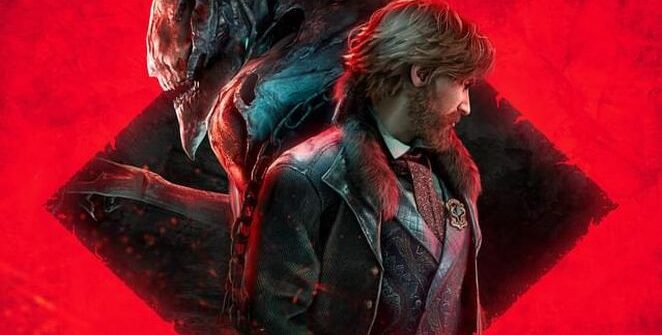
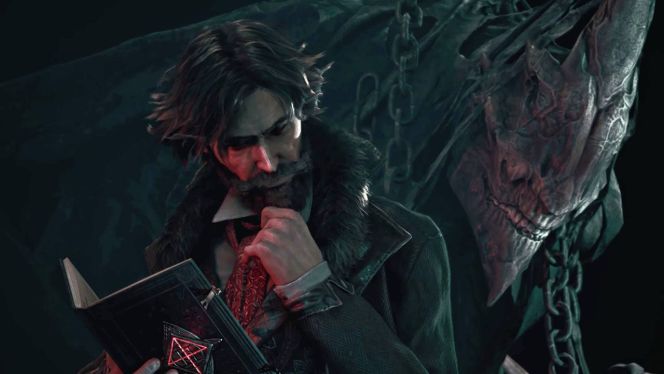
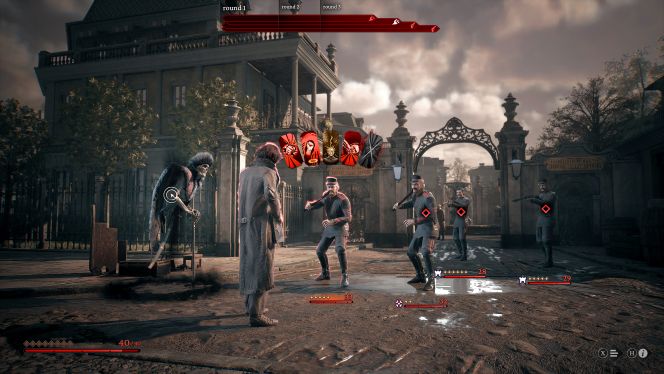
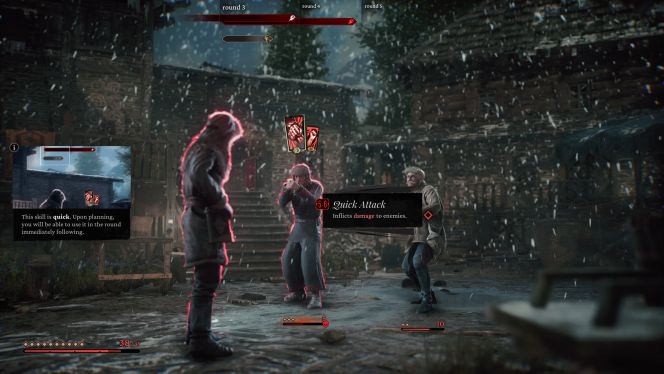
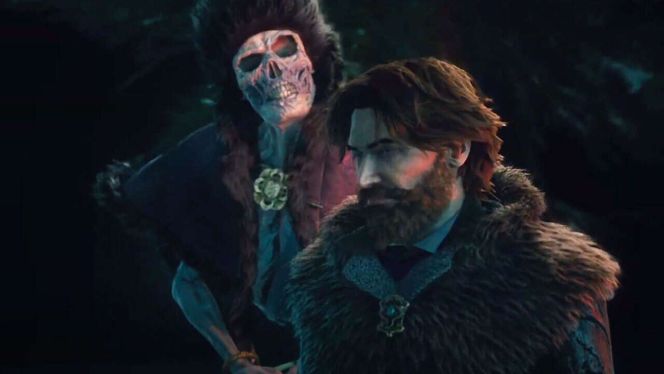









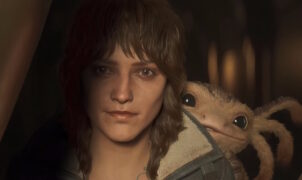

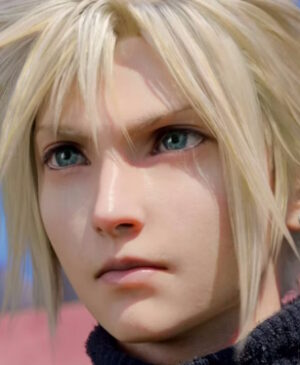


Leave a Reply